Every year the design academy Bezalel in Israel opens an exhibit of final projects created by the academy’s recent graduates. This year, a number of designs exemplified innovative solutions for community problems.
Amber Edri, Via
Via is a system designed to guide the blind and visually impaired through public spaces, without being gaudy or too noticeable.
The system consists of an iPhone GPS application that communicates with jewelry worn by the user. By using vibrations of different lengths, on either left or right hands, the system can inform users about their movements. These include information about nearest local transport to whether they are walking onto a road.
Toro, Neriya Chaim
Toro is a plastic tool designed for use by horse-riding therapists who have no other, standardized physical exercise tools. Toro can perform ten basic functions that can be used for a large number of excercises.
Additional elements can be attached for each patient and instructor’s needs. According to Chaim, the Toro combines development of fine and gross motor skills, spatial awareness, three-dimensional vision, tactile sensations, delayed gratification and patience.
Elena Brickman, Nextep
NEXTEP is a walker fashioned by industrial design graduate Elena Brickman. Brickman explained that her ambition was to create a walker that is a desirable accessory for elders.
Instead of the usual and unembellished walkers we are used to, she created a new, sleek design that emphasizes the physical needs of someone who needs the walker. It features breaks to slow down and help the user sit down or stand up, and spacious storage spaces.
Nadav Ambon, Talking About Samson
Sign up for our free weekly newsletter
SubscribeAmbon said he wanted to explore supposed heroism that takes the form of extremism. He used the Old Testament legend of Samson who, despite the fact that he is never explicitly called a hero, was elevated to such status by the Jewish people.
Ambon asks if we still need such a hero in modern society through an animated video that presents a number of less central characters who shed negative light on the so-called hero.
Yael Altshuler, Wood Toolkit
Wood Toolkit is a set of accessories for woodworking workshops for children with motor and cognitive disabilities. According to Altshuler, its purpose is to give children a sense of action and independence, while maintaining the values of safety, aesthetics and friendly and an intuitive interface, tailored to the capabilities of each user.
The kit was assembled with help from Beit Ve Nezula, a school for children with mental disabilities and cerebral palsy. Children at the school participate in carpentr workshops, but until now have had no special tools but rather staff had to adapt regular tools.
Avisar Caspi, Nadned
Nadned is a physiotherapy game designed for children with developmental problems such as cerebral palsy and developmental coordination disorder.
The game is a playing surface that has children use balance to play computer games to enhance each child’s stability. The child shifts his/her weight to the sides as part of the game, and is distracted from the fact that he is in treatment.
The speed and difficulty of the game are decided in advance, and particular emphasis can be given to certain limbs (the more injured). The game allows a variety of different, therapeutic poses, and an incentive to improve the efficacy of treatment.
Related posts

Rehabilitation Nation: Israeli Innovation On Road To Healing

Israeli High-Tech Sector 'Still Good' Despite Year Of War


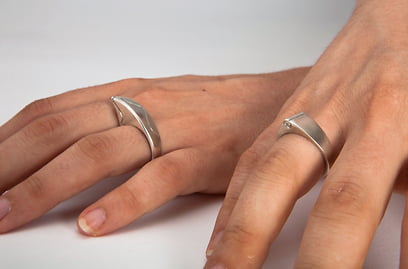
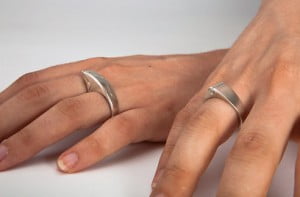
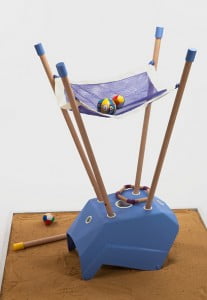
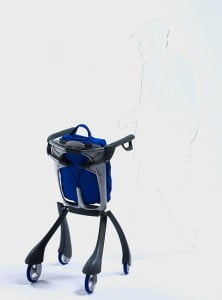
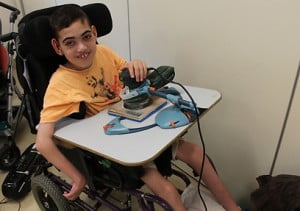
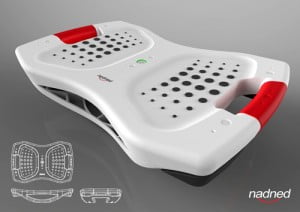


Facebook comments